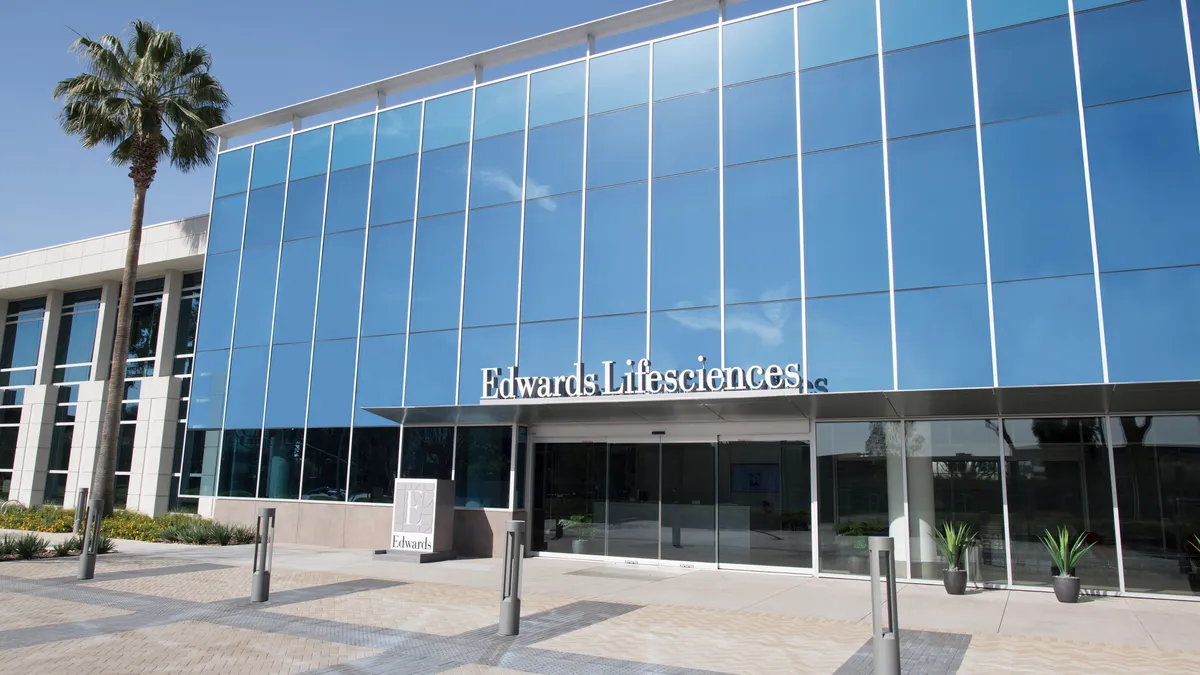Dive Brief:
- Edwards Lifesciences is recalling a guide sheath used with its Pascal transcatheter mitral valve repair system sold in Europe because of possible damage to the device's inner liner due to a manufacturing issue.
- While no adverse events or injuries to patients were reported from the problem, the sheath was recalled because an embolization could occur in a segment of the liner material if the device is used, according to an urgent field safety notice shared among international regulators. There was no information to suggest patients already implanted could be affected.
- Physicians were instructed not to use the guide sheaths and to return them to Edwards.
Dive Insight:
The catheter-based Pascal device is an important new product for Edwards, expected to help expand the market for mitral valve repair technology now dominated by Abbott's MitraClip. The CE-marked device is just beginning to roll out in Europe, and enrollment is underway in U.S. clinical trials.
In the urgent field safety notice, Edwards stressed that the recall affected only the guide sheath and not the whole Pascal transcatheter valve repair system. Damage to the inner liner of the sheath occurred in 1 in 200 units, or about 0.5% of the units, according to the notice.
The Pascal system generated only $10 million in revenue for Edwards in the third quarter, slightly below the company's initial expectations. On the earnings call last month, executives said the company was launching the device into the market slowly to ensure success with the procedure. A premium pricing approach also slowed adoption. The company tempered its full-year outlook for Pascal, saying it now expects sales to be below the $40 million previously projected.
Longer term, the outlook is much more ambitious. Edwards has estimated the market opportunity for mitral and tricuspid disease treatments combined could reach $1 billion by 2021 and about $3 billion by 2024.
The mitral repair device complements Edwards' successful Sapien aortic valve replacement system in its structural heart portfolio. The company projects the transcatheter aortic valve replacement market could reach $7 billion by 2024.
The company is evaluating Pascal in U.S. pivotal trials in patients with primary mitral valve disease, associated with the structure of the valve, and for secondary mitral valve disease, which can develop in heart failure patients when the left chamber of the heart becomes enlarged, preventing the mitral leaflets from closing normally.
In September, Edwards received FDA approval to begin a pivotal trial of Pascal in patients with severe tricuspid valve regurgitation.
All lots of model Nos. 10000GS and 10000GSCE are subject to the recall.










